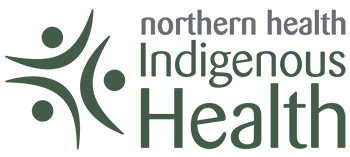Each week, the Indigenous Health department highlights good news stories from the North and from across the country.
'I'm 84 years old and rapping': Elder helps bring Haida language to new generation as one half of rap duo
84-year-old Elder, Jiixa (Gladys Vandal), of the Haida Eagle clan, is helping to preserve the Haida language with her adopted clan member Julia Weber. The pair have become a rap duo, singing songs they have co-written in Haida. Jiixa and Julia have found a unique way to preserve this endangered language introducing three rap songs to date.
With only two dozen fluent Haida language speakers left, creative ways of keeping young people interested in Haida language and culture have become incredibly important. "We want our children to grow up and learn their culture and their language and know where they came from," noted Jiixa.
Read about this duo and watch their videos from CBC British Columbia.
Indigenous woman draws on oral teachings to revive traditional motherhood practices
Traditional oral teachings from her family encouraged Nina Kent, an Anishinaabe entrepreneur and artisan, to teach Indigenous women in her community of Eskasoni, NS how to make traditional moss bags for their infants. Traditional moss bags keep infants tightly wrapped in a womb-like space. Making these traditional items supports young mothers in the community to reconnect with traditional motherhood practices.
After the birth of her own child, Kent was gifted a moss bag from her sister. This event helped her to learn the true significance of this traditional item. Many traditional Indigenous ways have been lost through the effects of colonization, residential schools, and oppression. Kent learned from her family that she herself had been carried in a moss bag as an infant.
Read more about this revitalized tradition from CBC Nova Scotia.
Tikinagan baby carrier returned to family after 50 years
Since the mid 1970’s, an Ojibwe family have sought to have the Le Musée de Saint-Boniface Museum return an important piece of their family history; namely, a tikinagan that was made by a grandfather. A tikinagan is a traditional item used to carry infants on the mothers back. Elder Martha Fisher is Anishinaabe from Bloodvein First Nation. She was pleased to have the item returned to her, noting that "My mom said I was the last baby in this tikinagan. That makes me proud to have been in this tikinagan.”
Emilie Bordeleau-Laroche, who is Métis, and curator of St. Boniface Museum, said the tikinagan was likely purchased for $20 or $30 and was bought using "dodgy" business practices. “We decided that it shouldn't be with us and it should be with them [the family] as they've asked for it back," said Bordeleau-Laroche. She also noted returning items can be a simple way of practicing reconciliation.
Read how this important family item was returned as well as a larger movement to repatriate others from CBC Indigenous.
FNHA, Talk Tobacco launch program to help people quit commercial tobacco
First Nations Health Authority (FNHA), in partnership with the Canadian Cancer Society and Ontario Health's Indigenous Cancer Care Unit, is launching the Talk Tobacco program.
The program is now available in BC and is designed to provide free, confidential, culturally-appropriate and accessible support to quit/reduce smoking, vaping and other commercial tobacco use.
You can access this service by telephone, text message and live chat. The service is free and confidential, open seven days a week and offers interpretation in many Indigenous languages.
Learn more about this program and the difference between traditional and ceremonial tobacco use on FNHA’s website.

